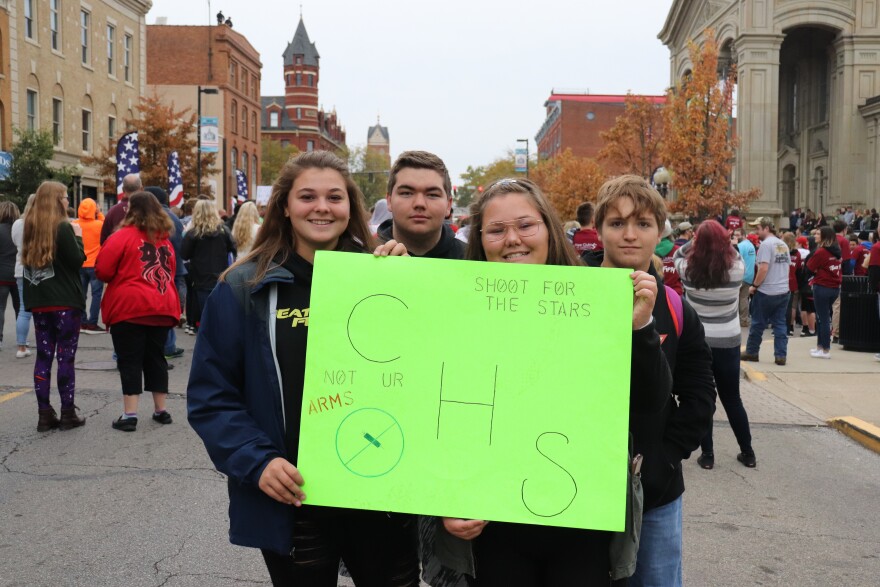Early Friday morning, kids streamed up Park Street in downtown Chilicothe. Places like this have borne the brunt of Ohio’s opioid crisis—the Ross County seat saw nine overdoses and five suspected overdose deaths in just the first week of this month.
The parade of students are trying to push back. Some schools brought their drumlines. Some kids wore matching shirts. Others, like Katie Thomas, carried signs.
“It says shoot for the stars, not your arms,” she said as a group of friends gathered around her.
They’re all members of school organizations backed by the Drug Free Clubs of America. Students agree to submit to a drug test to join and then face random testing throughout the year. In exchange, they get an ID card that grants them access to special events hosted by their schools as well as discounts or other perks at local businesses.

Thomas is a first year member.
“I’m here today to show people that it’s not right to do drugs and they can stop doing drugs right now,” she said.
Caleb Booth goes to Buckeye Hills career center in Rio Grande, and he suggested the club could be good for his job prospects.
“Especially since we’re a trade school,” he explained. “It looks a lot better with employers that, hey we’ve been drug free, we’ve had these tests and everything.”

Matt Paxton teaches math at nearby Unioto High School and he coaches track and field. Paxton says all the kids who run track and cross country are members, so he comes along to chaperone.
“We’ve got to do something with the drug epidemic in southern Ohio,” he said. “We’ve got to do something to make sure that these kids are getting involved with something positive.”
Opioids in particular leave the system quickly. The FDA says they show up in urine tests for only about 2 days. The voluntary nature of the club and random testing means plenty of students could fall through the cracks. Paxton acknowledges the drug testing scheme isn’t foolproof, but he still sees the program as important for its members and successful at his school.

“I think it’s real effective, and it also gives these kids an out,” he said. “Because if they’re out and they’re getting peer-pressured, they can just tell people they’re getting tested. And I think it encourages them to realize, when over half your school is involved in it, they realize they’re not the outliers.”
According to Unioto club organizers, 53% of the student body are members.
After marching a couple blocks, students and onlookers gathered in front of the Ross County Courthouse. Representatives from the different schools talked about their membership or shared personal stories. Keegan Hall spoke about seeing her older brother struggle with addiction.
“Brian became depressed I truly believe he wanted to stop but the addiction already took over,” she said fighting off tears. “The two things that will stick in my head and probably will forever are watching Brian take a knife to his arm and digging pills out of his mouth.”

Hall said it was the sort of thing you only see in movies. She’s been a member of her club for four years and she’s shocked at how much the rally has grown.
The Ross County Sheriff marched alongside the students brimming with optimism. Looking out over the stream of kids he said this will be the generation that ends the region’s drug problem.


